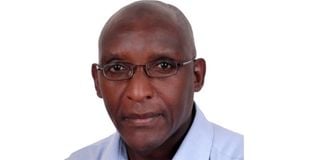Prime
Looking for money among poor people

Author: Okodan Akwap. PHOTO/FILE.
A wise man once said: “If it is money you are looking for, look for it among poor people.” Roko Construction Company becomes the latest foreign investment entity to sing a sweet song to our government just to get billions of shillings from poor Ugandans.
Although registered in Uganda in 1969, the original shareholders of this debt-ridden company were Swiss nationals. How many poor Ugandans, whose money is rescuing this company, know where Switzerland is located? And how many can locate Italy, where another la-di-dah singer named Enrica Pinetti came from and got billions of shillings to construct an imaginary hospital?
What makes these deals truly vexing is the casual manner poor people’s money was dished out. Local press reports say Parliament casually, speedily and recklessly approved a questionable proposal by the government to purchase 150,000 preference shares in Roko at Shs209 billion.
The government’s directive for Roko to get the money, whether Ugandans wanted it or not, was uncalled for. This disregard of Ugandans’ interests reminds me of that memorable day of August 4, 1972, when Idi Amin, mindful of the public mood, issued a decree expelling Asians. I was 14.
I could not correctly understand the social, political, and economic issues behind the uprooting of an entire category of people who had a firm hold on the economic levers of Uganda at that time.
But after the coup of July 1985, when I was 27 and jobless in Kampala (The People newspaper where I had worked as a reporter had collapsed), I ran into a lawyer I only knew as Mr Banya and my understanding of the “Asian expulsion” deepened. He said he was writing a book on the subject. He paid me to go and do research – basically flipping through newspapers of the 1960s and 1970s – at the Uganda National Archives in Entebbe.
I discovered that stories of Amin suddenly getting a weird dream to expel Asians were mythical. The truth of the matter was that in the early 1960s, the Asians’ dominance of the economies of the newly independent Uganda and Kenya had become a hot political potato.
So hot was it that in 1967, Kenya passed a law requiring all non-citizens to get work permits. This law triggered the “Asian exodus” from Kenya to Britain in 1968. Then in 1970, the government started issuing quit notices to Asian shopkeepers who had not secured Kenyan citizenship. This “Kenyanisation” policy gave Kenyans some control over their economy.
In Uganda, the Asians owned roughly 90 percent of the businesses and were accounting for a similar percentage of tax revenues. But there were reports about the Asians’ inclination to be two-faced. For example, some allegedly kept two sets of accounting books; the fake ones written in English and the real ones in Gujarati. Legitimate concerns over the tendency of foreigners to evade taxes and repatriate profits accumulated in Uganda were as strong as they are today.
Also, it is important to note that in Kenya, President Jomo Kenyatta was revered, even deified; in Uganda Amin was loathed, even demonised. Still, Amin was the second president to try to put the economy in the hands of indigenous Ugandans. Even firebrand Kenyan politicians such as Martin Shikuku praised Amin’s courage to see off Asians.
But Amin’s method was wrong. President Obote, with his 1969 Common Man’s Charter, had a correct method of using Parliament to enact a law requiring the government to acquire – in trust of the people – majority shares in key sectors of the economy, including banking.
Back to Roko and Pinetti and their penchant for looking for money among poor people. How the heck did we get to this? Simple. Blinded by the deceptive allure of economic policies pushed by the World Bank and International Monetary Fund (IMF), we unwittingly let foreign capitalist interests drive our economy.
So, for as long as the status quo prevails, just peddling quasi-political policies such as the Parish Development Model will never set Ugandans free from the poverty trap that has ensnared them.
Dr Okodan Akwap (PhD) is an associate consultant at Uganda Management Institute.



